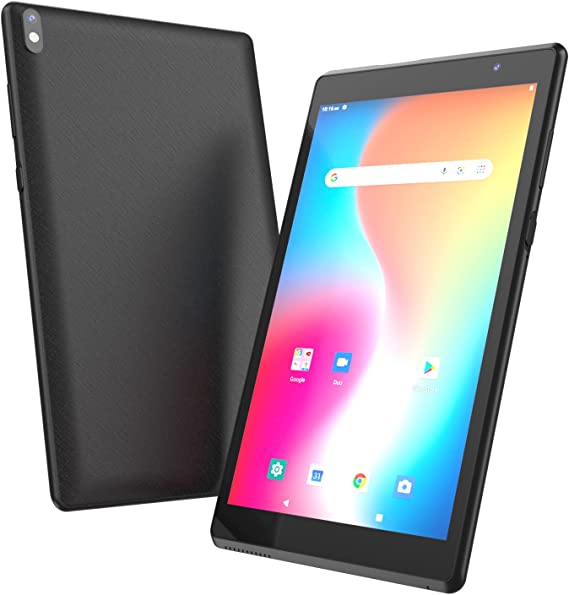How to Host Open Houses That Get Leads | 2023
Hosting a real estate open house is the quintessential, most real-estate-y activity imaginable.
Depending on your market, open houses may be expected. You may do them even if they aren’t a primary lead source.
But if you want to turn open houses into a pillar of your lead generation, then continue reading. This resource is for agents who not only want to do an efficient and effective open house, but want to build their business on a foundation of the mini-house parties we call open houses.

Pros and Cons of Open Houses
One note about open houses and using it as a lead generation strategy. Different markets treat open houses very differently.
For example, in my own market, open houses are pretty meh. They mostly seem to attract neighborhood look-ee-loos and Realtors looking for snacks. Many agents forgo them altogether.
Meanwhile, just 30 minutes away in Austin, open houses are the norm, and indeed a common source for your ultimate buyer. It is expected that you list the home, host an open house Saturday or Sunday, and then pick an offer on Monday.
Depending on your market, there may be different expectations.
Meanwhile, here are some other considerations before choosing open houses as your lead generation strategy of choice.
Pros
- Cheap. Hosting an open house is a common strategy for newer agents because it costs almost nothing but your time. You don’t even need a listing. You can partner with another agent in your office or a builder who is willing to cooperate with you on an open house.
- Unaffiliated Buyers. Even if just neighborhood look-ee-loos, there is a chance that someone is perhaps renting in the area, starting to get curious about home buying, and your open house sign was the trigger to just check out what is going on. Open house attendees are less likely to already have agent representation. They are at the very top of the funnel, if in the funnel at all, so you will need a very patient and persistent follow up to convert open house leads. But they are there if you are diligent!
- 2 Birds – 1 Stone. Open Houses are unlikely to sell a home in most markets. But it’s often expected by sellers and an opportunity to showcase not only your listing but yourself. Properly promoting an open house to the neighborhood is an opportunity for more engagement and listings.
- Feedback. There is one major benefit to a seller by hosting an open house: feedback. Did they not believe you when you insisted the carpet needed to be replaced? Well, 15 comments from open house visitors about the carpet stains might be persuasive. In a slower market or higher price point you may not be getting a lot of showings in the first two weeks, and therefore not a lot of showing feedback. An open house can juice your feedback so you can adjust your price or presentation.
Cons
- Limited to After Hours. There’s nothing keeping you from hosting an open house during the Wednesday lunch hour, but the best time to hold an open house is after hours and on weekends. That means you only have so many time slots to work open houses, and you’re also surrendering a lot of what might otherwise be your free time or slots for showing buyers. If you get busy showings homes on weekends, is your lead gen going to dry up because you aren’t doing open houses anymore?
- Low Lead Quality. Open house attendees are often tire-kickers, have not been prequalified, or are nosy neighbors. It just is what it is. That doesn’t mean these are not leads! If you can manage to follow up with a funnel that can last over a year, these are emails and phone numbers worth having. But it can definitely get frustrating.
- Safety Risks. The people attending an open house have not been vetted. At least when meeting a buyer or seller you usually have a name and some info about them. Not so at an open house. Not only is your personal safety more at risk, but the homeowner’s belongings are, too. At least if something goes missing during a normal showing there will be a record of what agents accessed the home. You are less likely to be able to trust an open house sign in register to track down any malfeasance.
- Missed Expectations. Sellers often want an open house because they think it is necessary to the home selling process. I can’t say how many expired listings I worked with complained that the previous agent didn’t do enough to sell their home. While an open house can go a long way toward convincing your seller that you are working hard for them, it might also inflate a seller’s expectations for the sale. The reality is that, in most markets, open houses do not result in offers in inboxes. Most buyers find their home shopping online. Ensure you don’t have a disappointed seller when offers don’t materialize.
If these don’t appeal to you or your style, consider and compare it to other lead generation strategies.

How to Do an Open House
Advertise and Promote the Open House
- Select a time. The best time for open houses is weekend afternoons. Folks search homes in the morning and attend them in the afternoon. Weekdays after work are okay, but many folks just want to get home after a long day, and it may be dark by the time you’re wrapping up. Schedule it at least a week out so you have time to execute on these other advertising to-dos.
- Advertise your open house to the MLS and portals. You can usually add open houses to your MLS. If you didn’t update that when you initially set up the listing, do so now. If your broker syndicates to the portals like Zillow, your open house listing should propagate to the portals as well. Otherwise, you can add it manually to sites like Zillow and Realtor.com.
- Create a landing page. If you or your broker has an IDX website, your landing page could be as simple as the home page from your own website. If you have a single property website, even better. When sharing your open house, include the link to the landing page so that it encourages interested visitors to log in with their details.
- Promote a landing page to social media. You don’t need to spend money unless you are comfortable doing so. Most areas have numerous Facebook groups for sharing homes for sale. You can take advantage of these to also share your open house listing. My own market has at least 20 sites with over 1000 members each just for sharing listings and open houses. Share photos and your landing page on Instagram as well. If you have a listing video or virtual tour you can easily pair video content with your open house promotion.
- Create an event page on Facebook. Add your open house to events to take advantage of Facebook’s full ecosystem.
- Reverse prospect for your open house. You, your team, or your brokerage might have reverse prospecting tools in software like Boomtown, or database marketing tools. MLS systems also often have reverse prospecting tools based on listing alerts other agents have set up for clients. You can reach out to hose agents and invite them! You should be using these to look for potential buyers for your listing already. But reach out as well to promote your open house to contacts that are looking for properties like yours.
- Direct mail the neighborhood. This can get expensive quickly. If you are going to do mailings, it’s probably best done in your initial Just Listed mailing and including an open house. Companies like Quantum Digital make it very easy to automate your open house mailings.
- Promote open house to Realtors. In addition to reverse prospecting and posting to popular Facebook groups, you can reach out to agents. Getting Realtors into your open house, even without buyers, is a great way to get feedback. Don’t email your entire association distro. That is annoying. Instead, reach out to your brokerage to encourage attendance.
Preparing for the Open House
- Signage and balloons. Balloons are nice attention grabbers but optional. If you don’t already have directional signs, try to get some from your office and don’t spend too much money. These go missing frequently. There’s no rule on how many to put out other than you don’t want to make it hassle to get them back again. Open house feather flags can be nifty for the home itself.
- Door knock neighbors. The two hours prior to the open house, consider door-knocking the nearest 50 surrounding homes. You have an excuse to connect with these neighbors. People move on average once every 7 years, so out of 50 contacts there are likely 6-7 who will be moving in the next year. Read my door-knocking scripts for this strategy.
- Declutter, depersonalize, and stage. This is on your homeowner, but you need to serve as their trusted advisor on cleaning and decluttering the home in preparation for showing. Remind them of what they need to be doing for showings, decluttering a deep clean, and securing valuables.
- Open the blinds and turn on the lights. Light sells the home. Even if during the day, turn on the main lights in all the rooms as well. You can’t have too much light. When closing up, be sure to turn off the lights and return the windows to however the seller had them.
- Food. No drinks except maybe bottled water (they can spill and stain!). Get food that is not going to make a mess and easy to eat.
- Air-fresheners. Bring some along if necessary. Smell is one of the most important features to sell a home.
- Set up the sign-in sheet. Get your sign-in sheet ready. When you become an open house pro, you will likely want to go digital with some open house software and perhaps a dedicated tablet for open houses (a cheap one that won’t set you back too much if it goes missing).
- Print out property fliers and feedback forms. Have something you can leave with your visitors to write notes on and remember the address and your contact information when they are back home and considering options.
- Keep basic cleaning supplies on hand. As part of your car kit you should already have some basic cleaning tools. Be sure it’s topped up in case you have any last-minute items you need attending to.
Conducting the Open House
- Get people to sign in and submit feedback. You need folks to sign in for accountability and an opportunity to follow up after. Be sure to steer them to the sign-in first. Remind them that they owe you written feedback at the end, as well!
- Sell the house, not yourself. Remember who your fiduciary obligation is to: the seller. You represent the seller. After talking with a buyer, is the house really not a good fit for their needs? The temptation is to then go into real estate agent mode and start offering to help them find a different house. Be wary. Your job is to sell your listing first. You need to make a good faith effort to do just that before you begin suggesting alternatives to visitors. Perhaps save trying to convert them to possible clients until the follow-up.
After the Open House
- Call or message your seller immediately. Your seller is anxious to hear how it went. Maybe they are anxious to return to the house if it’s over. Whatever the case, you owe it to them to keep them updated. Message them to let them know the highlights and that they can expect a full account of the open house later.
- Prepare and deliver feedback to the seller. Itemize the feedback and send it with any recommendations.
- Follow up with prospects. Now is your time to follow up with possible buyer leads. If they are interested in the home, match them with an agent in your office for a referral fee. Otherwise, help them with their home search!
- Add prospects to CRM. You open house contacts belong in your CRM. These leads are often very far out from buying and you will want a decent method of keeping up with them for a long time.
Staying Safe
According to NAR’s 2019 Member Safety Report, 31% of Realtors felt unsafe in an open house at one point or another. 5% say they have been a victim of a crime while conducting professional business. And there are, of course, too many horror stories like these.
Your own safety is your top concern. But so is the safety of the home, your seller’s valuables, and visitors. Be sure to take these defensive measures to ensure you have a pleasant and safe open house.
- Buddy Up. Sure, it’s not efficient, but hosting an open house with another agent is a great way to help stay safe and have an extra pair of eyes to monitor house guests.
- De-Jewel the Home. Sellers should be doing this anyway prior to listing, but ensure they have taken all valuables and keepsakes off-site or locked up securely.
- Ban Owner-Occupied Open Houses. Some agents take it a step further and refuse to host an open house except for vacant homes. This ensures no valuables will go missing and there is the least chance of an unregistered visitor offending your seller and turning things into a mess.
- Record. If your seller has safety cameras in the home, ensure they are recording. Put up a sign prominently showing visitors that there are cameras recording in the home, both as a courtesy and a warning. You are allowed to record video in your home, however audio may be a different story.
- Safety Tech. There are quite a few phone apps designed for folks like real estate agents. My family and I use Life360. Others designed more for professionals and with a few more toys include bSafe. NAR has a safety section featuring different safety tools. Many of these have free versions.
- Cell Phone Charged and Ready. Be sure your phone is fully charged and keep it on you at all times.
- Have an Exit Plan. When setting up, be aware of the home exits and unlock doors so that you have options should you need them.
- Lock Everything When Done. Check windows, back doors, gates to the yard or pool. Ensure that none have been left open or unlocked, inadvertently or otherwise.
- Wear Comfortable Shoes. God forbid you should need to be nimble on your feet, but you’ll be ready. And more comfortable!
- Walk Behind Visitors. You want the activity to be within your eyesight.
- Conceal Carry. This is obviously not everyone’s cup of tea, and you should only carry a firearm if you are well-practiced on it. But an estimated 14% of real estate agents conceal carry, not to mention the other non-lethal weapons available like pepper spray or tasers.
- Go Virtual. Almost all your safety concerns solved in a single cut of the Gordian Knot! Host virtual open houses and invite anyone who is serious to an appointment to tour the home after verifying their information.
How to Do a Virtual Open House
- Live vs prerecorded.
- Live. Going live on a platform like Facebook allows for audience engagement and more interaction. It more closely resembles the experience of actually touring the home. Keep it as an event on a schedule to maximize the odds of anyone signing in (though don’t be despondent if no one doest). You can answer any questions of prospective buyers that do show up. You can spice it up with a 360-degree camera!
- Pre-recorded. More like a video tour, you can pre-record your open house and increase the professional production.
- Spend more time. This isn’t just two-minute listing video. This is an open house. 10-20 minutes should be the standard, a typical time a visitor might actually visit a home. They should be able to get a feel for the flow of the home and the details, all while you narrate and engage.
Here is an example of a virtual open house:
Open House Tips for Realtors
- Prizes and Drawings. Partnering up with other agent listings is a popular way of doing open houses. You can split the cost of a prize and all those who make each open house are entered into the contest. Or you can run a price drawing for your own open house to promote it. This is better if you’re trying to attract real estate agents. If you are trying to get buyers, they should be there because they are ready and willing buyers, not because there is some prize. Getting to see the house should be prize enough, in my humble opinion.

Resources and Training
Remember, here at Hooquest, I believe in spending as little money as possible. I don’t recommend purchasing coaching, training, or advertising until your business is already working. Most of these resources and training materials, however, are free!
YouTube Training
Online Publications
If you are wanting to brainstorm yet more best practices and ideas, I might consider some event publications. An open house is essentially throwing a mini-party or event, after all.
Podcast Episodes
If you are interested in content marketing and blogging, I recommend checking out the podcasts at:
- Real Estate Rockstars. 879: How Open Houses Helped Tami Pardee Build LA’s No. 1 Real Estate Team
- Mastermind Agent. SC206: “Mark Z” Zawaideh. 200 Open Houses His First Year and Secrets Learned. Best Expired Listing Appointment Setting Tie Down Question. Building A 100 Million Dollar Empire
- Real Estate Rockstars: 886: Win Buyers AND Sellers with the Best Open Houses in Town: Prashant Vanka and Danny Burgess
- Mastermind Agent: SC170: Nate Brill. How to sell 2 homes per month hosting open houses.

Conducting Open Houses and Developing a Safety Plan
CONTINUING EDUCATION
Interested in learning more about open house best practices while earning CE credit? The CE Shop provides courses in the following states.

Open House Tools and Software
There are some affordable or even free open house software options available. Below are a few to get started!
Remember, I don’t recommend spending money if it can be avoided. You can do open houses for free. These are tools to consider once you are meeting with success with open houses and ready to up your game.

Open Home Pro
FREE+/mo. Open Home Pro is an Android and iOS app for open house showings. Open Home Pro offers a sign-in sheet and automated follow up after open houses.

Spacio
$25+/mo. Spacio is a an open house software with quite a few bells and whistles. It includes brokerage reporting features and a fair number of integrations. For example, Spacio has ad integration which allows you to remarket to open house visitors, as well as social sharing and in-app branding for enterprises.

Conclusion
A good open house is a great way to earn business as a newer agent or meet seller expectations as an experienced agent.
Promoting and running your open house correctly will be a win-win for everyone.

